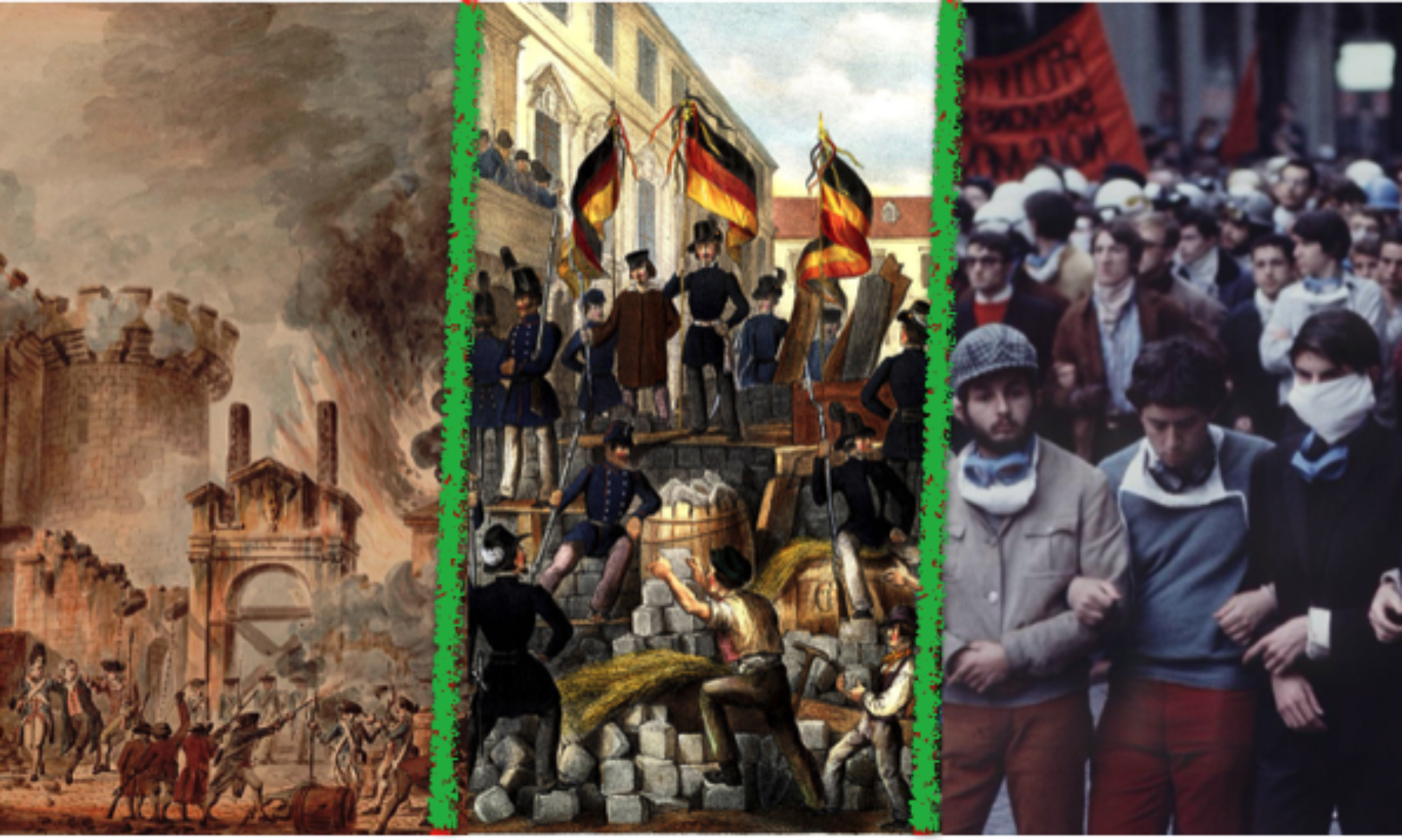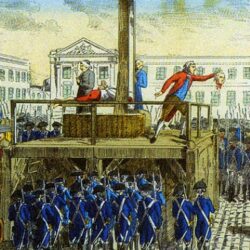For our last class, we read about a new age of freedom in France, free of the absolute monarchy of centuries past. While we all seemed to agree that the changes proposed may not have been as liberal or democratic as they were viewed by the National Assembly, it was still movement in the right direction. In today’s reading, we see France fall into the Reign of Terror, a departure from the “amazing” society that the revolution was supposed to create. Here’s my question: What went wrong? Although it may seem simple, I think this is something we need to talk about. Popkin mentions a few theories from historians at the end of Chapter 5. The one that mentions the “outgrowth of the movement’s utopian and unrealistic aspirations.” Was the government being unrealistic? Another interesting position Popkin mentions is that the Terror was a method to actually reduce the likelihood of even more violence. What does everyone think about that?


Revolution! Europe at the Barricades (HIS 270-02 F20)
Fight for your rights!
I have been thinking about the Terror as a method to reduce more terror since I read over that section. I can sort of see the argument that you have to go to a really radical extreme just to prove a point like, “life was not what I want it to be, but this is differently not what I want.” However, I don’t know if they were that calculated in their choices. Their decision to finally kill the king that was calculated. Not sure if they knew what was happening after that.
I wanted to second what Sydney had said, that there was truly no real order to what the revolutionaries wanted to achieve in the aftermath. In the moment all that was known was to get rid of the monarchy and alleviate France from that abuse of power. I do not believe that the government was being unrealistic with their need to want a perfectly just society, but there was no structure with which to achieve it, and when there is no structure blame falls on those that lead to this task at hand. In the case of the Reign of Terror, the government felt that violence against suspected enemies of the Revolution was the only way to go. Also, with the issue of the Terror being used as a way to reduce the likelihood of violence reminds me of the idea of whether you want to be feared or loved when in power, and in using violence the government is able to instill fear and lower violence.
I think it is an interesting topic to touch on, although I agree with Adrian and Sydney. The rush to form a republic and to remove the monarchy was intense, which leads me to believe that violence was sure to start, if not rise. Once the political leaders saw what an inspired, angry crowd can do, that is when they learned from the protestors and rebellious groups that fear and death can control more than they thought. They used this to their advantage to persuade and corrupt the minds of the people. Of course a perfect society would be great, but without a plan it will certainly fall short.
I believe what went wrong with the aspirations of the “amazing” society would have to be influences from those who give information to the people. Those such as Herbert, Robespierre, and the Jacobins. If such distrust and accusations did not occur then possibly the reign of terror would not have happened. But I also agree that if the terror did not happen then possibly something worse could have happened. But with much political and economical instability anything can happen.
With any violent revolution, there is bound to be some form of terror attached to it, as there will inherently be a population that was not in favor of the revolution to begin with. Did Robespierre and and the Jacobins take it to an unneeded fanatic level? Absolutely, but had the terror not occurred, France would have likely divided again into the various factions that it had previously been. It is important to remember that the revolutionary ideals were the glue behind the third estate, and that removing those ideals, or at the very least allowing them to slowly die out, would corrupt the unity of the nation. Along Mario’s line of thinking, with France in a new, fairly unstable form of government, everything was in a trial phase and a counter-revolution could have been a disaster for its ultimately all-inclusive, free society.
When fighting for freedom and change it seems that it is inevitable to avoid chaos terror. With a revolution that contains so much emotion and frustration the main goal can easily get lost. I personally believe this was the case, the French revolution went down a path that was demanding huge change fast and that is why the the so called amazing society never lead up to expectations .